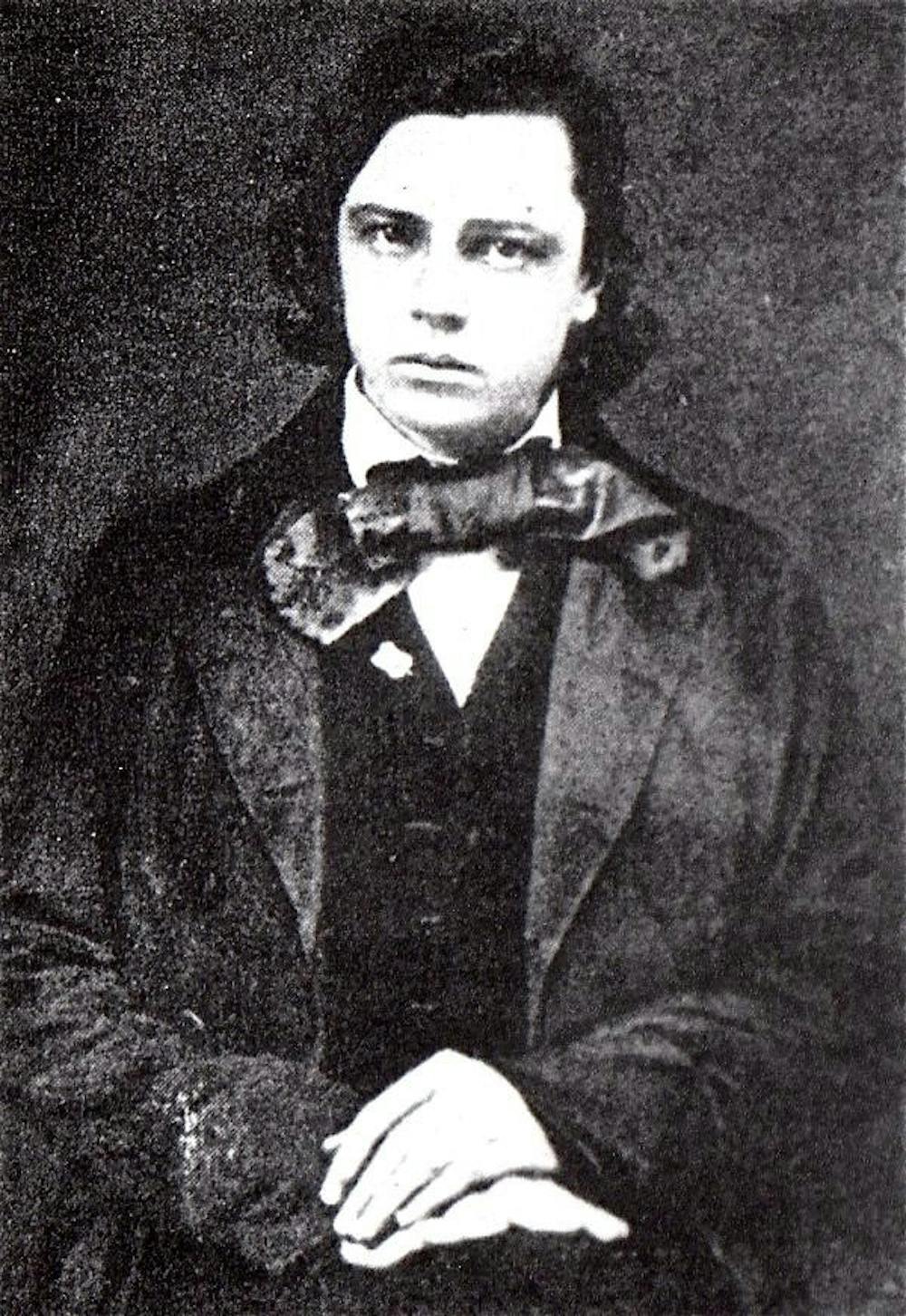
Joel Allen Battle Jr. was a Tennessee native who graduated in 1859. Asked to be his father's primary aide, Battle died in combat while fighting for the Confederate Army. (CONTRIBUTED BY MIAMI UNIVERSITY ARCHIVES)
On Saturday morning, April 13, 1862, the 150 students of Miami University, along with a substantial number of Oxford's concerned citizens, amassed inside the college chapel. From the podium, President John Hall somberly announced the firing upon Ft. Sumter in Charleston Harbor and the onset of the Civil War. He read from the Bible and urged the young men under his care to return to their studies.
The possibility of war had long been a concern for the men of Miami. The weekly debates inside the university's two literary societies regularly addressed the merits of issues such as abolition, states rights and the expediency of secession. Only weeks earlier, one Southern Erodelphian Literary Society member delivered a rousing patriotic tribute to the United States of America. But with Hall's announcement, his devotion shifted immediately to his native soil and he quickly departed to fight for the newly christened Confederacy. Miami was a college divided.
The news prompted Ozro Dodds, namesake of Dodds Hall, to organize and drill a company of 150 volunteers comprised of both students and local citizens. On April 22, the "University Rifles" paraded from the campus to the train depot. There, Hall presented the troops with an American flag and regimental banner sewn by the local women. To raucous cheers from the assembled throng, a majority of Miami's student body were suddenly off to war.
Over the course of the war, 502 Miami students and alumni participated in the fighting — 464 for the Union and 38 for the confederacy. This was a remarkable number considering Miami's enrollment averaged around 150 students per year over the previous decades. Miami would later take pride that her contributions were significantly larger than most colleges — including Harvard and Yale Universities. 151 Miami men served as officers, including 54 Colonels, 16 Brigadier Generals and three Major Generals. By the close of the war 26 Miami men — 20 for the North and six for the South — paid the ultimate price with their lives. Scores of others suffered serious casualties in the line of duty.
There are countless stories of the valor, bravery and heroism of Miami's sons from those bloody days. But one poignant tale highlights the true spirit of brotherhood and affection forged in earlier, more peaceful days at Miami touched the hearts of both Northerners and Southerners long after the last shots were fired.
Joel Allen Battle Jr. was a Tennessee native who graduated in 1859. During his years at Miami, he was a feisty chap who enjoyed a good fight, whether with fisticuffs or with words debated in the Erodlephian Hall. Despite the fact that his father owned one of the largest plantations outside of Nashville, there is evidence to suggest that Battle changed his mind about the system of slavery based solely on the power of argument encountered in his beloved Literary Society.
Following graduation, Battle married a local Ohio girl, fathered a son and moved to Cincinnati to study law. As the specter of war loomed larger, Battle confided to his best friend from college, John C. Lewis, that "if war broke out in which his State would be involved he could not fight against the flag, or against the people of his birthplace, and would probably go abroad in hopes that the struggle would be brief." But when his father was commissioned Brig. Gen. of the 20th Tennessee and asked Battle to be his primary aide, Battle accepted his fate without question.
In early April 1862, Battle's regiment encountered forces comprised of many Miami men at Shiloh. Despite a serious chest wound suffered at Mills Creek in February that left him unable to handle a gun, Battle engaged in one of the bloodiest skirmishes on one of the war's bloodiest days. In a flash, Joel Battle was killed.
The following day, an Union Army surgeon recognized Battle's body and presented his corpse to Battle's old friend, John C. Lewis. Lewis soon informed two more of Battle's best Miami chums, Clifford Ross and John Chamberlain, stationed nearby. From discarded cracker crates, the three friends constructed a coffin and buried Battle with dignity and affection. In March 1907, Lewis recounted the scene for The Miami Student: "The dreadful relics of a great battle were for miles all about us — on both sides some 9,000 dead to bury, and 15,000 wounded to care for. The burial was near our camp, and in the shade of an Oak tree; the means available were rough, but I could not have asked for a brother's more than we did for his body. I believe no more brave and noble soul left its body on that bloody field."
The Civil War is remembered as a war that pitted brother versus brother and friend versus friend. But word of this gallant act of brotherhood soon spread throughout the country. As the nation later struggled to heal fierce animosities festered over the course of the war, it was many from the South who pointed to this story for inspirational hope that mutual reconciliation and understnding would once again prevail. Thus the legacy of the burial of Joel Allen Battle has remained a particular source of pride for Miami's veterans and non-combatants alike for nearly 150 years.




